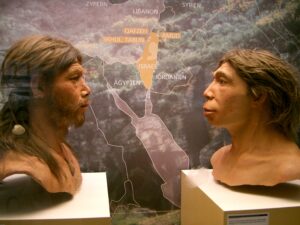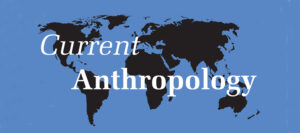Current Anthropology Special Issue: Alternative Pathways to Complexity

The Wenner-Gren Foundation and the University of Chicago Press are pleased to announce the publication of Current Anthropology‘s eight installment of its popular Symposium Series, “Alternative Pathways to Complexity”. Based on WGF’s 148th symposium held at Axel Wenner-Gren’s former residence of Häringe Castle, Sweden, this collection of articles traces the evolution of the Neanderthals and Homo sapiens and the complex emergence of anatomically-modern humans.
Thanks to Rachel Wiseman of the University of Chicago Press for provding us with this press release detailing this issue’s exciting contents:
Neanderthals and biologically modern humans represent two fascinating case studies in parallel evolutionary experiments. Descended from a common ancestor, they evolved independently for hundreds of thousands of years, during which time some physical differences had developed and a large degree of cultural evolution had occurred. With their large brains and complex behavioral and cultural adaptations, humans and Neanderthals created two distinct avenues for evolutionary change. A new special issue of Current Anthropology examines these separate but corresponding evolutionary courses, from multiple angles.
The most recent installment of the Wenner-Gren Symposium Series, Alternative Pathways to Complexity: Evolutionary Trajectories in the Middle Paleolithic and Middle Stone Age, features fifteen articles, plus an editors’ introduction and a note from Leslie Aiello, President of the Wenner-Gren Foundation. The issue is cross-disciplinary in nature, featuring contributions from archaeologists researching material culture and subsistence; physical anthropologists; a demographer; a geneticist; modelers of cultural evolution; and a climatologist.
The papers included in this supplement help to inform our understanding of why Neanderthals went extinct while modern humans flourished, and, just as importantly, provide a more nuanced look at the elaborate and unique adaptive systems these sophisticated hominins developed. As a collection, these articles explore the hypothesis that modern human behavior did not evolve in a straight line, but that there may actually have been multiple evolutionary trends occurring simultaneously. Answering these questions definitively goes beyond the scope of this supplement, but the scholarship included suggest that we have the scientific tools to research these evolutionary models more thoroughly.
The articles in this special issue “provide an assessment of state-of-the-art knowledge in the Middle Paleolithic of Eurasia as well as the Middle Stone Age in Africa, along with relevant paleoclimatological, genetic, demographic, and biological perspectives” writes Leslie Aiello. “This collection is destined to be an important resource for the future.”
Current Anthropology is a transnational journal devoted to research on humankind, encompassing the full range of anthropological scholarship on human cultures and on the human and other primate species. The journal is published by The University of Chicago Press and sponsored by the Wenner-Gren Foundation for Anthropological Research.
